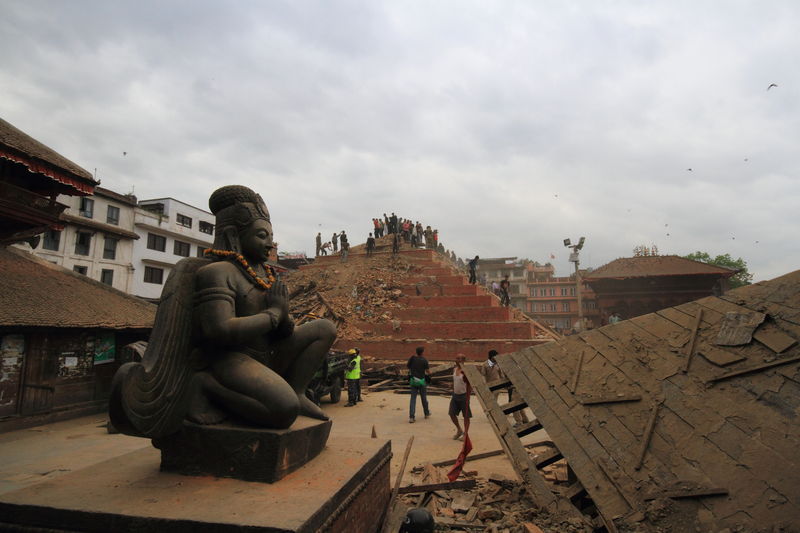Stories about Nepal from August, 2006
Nepal: Politics and Beauty Queens
United We Blog! on a conversation with contestants for Miss Teen Nepal 2006. “The beauties looked confused and Arpana came up with the answer once again. “If you ask me I can easily say what should have been done but can’t say what exactly needs to be done.” An answer...
Nepal: Get rid of Democracy
Blogdai scans the political horizon and suggets we get rid of democracy.
Nepal: Festivals and Politics
United We Blog! on how festivals for women reinvent themselves to be more socially and politically relevant.
Nepal: On the interim draft constitution
Bahas on the features of the Nepali interim draft constitution. I like what it says about women. “Once the interim constitution becomes effective, women will enjoy equal property rights and all types of discrimination against women will end. Women will have right to participate by one third in each structure...
South Asia: Travelling while Asian
Pickled Politics on TWA (or Travelling While Asian) as an India bound flight was diverted to Amsterdam because of what appears to be racial profiling or paranoia.
Nepal: Army and the Maoists
As the political scenario in Nepal changes, what role does the Army play in the integration of Maoist rebels. United We Blog! on the Army and the Maoists.
Nepal: Svankmajer's political allegory
Samudaya.org on Svankmajer's Lunancy – “Svankmajer appears in the opening scene to present a short monologue: the film, he says, debates the ideology governing the operation of a lunatic asylum—whether to run on the principle of absolute freedom, or an absolute system of control and punishment.”
Nepal: Nepal and the world
Maila Baje summarizes the international politics perspective of the Maoist supremo Prachanda. How and why India chooses to interfere in the country, and has China been fair to the aspirations of Tibetans?
Nepal: Judging the Maoists
Freedom To Express wonders if different standards are used to judge the Government and the Maoists.
Nepal: The Military
Nepali Netbook on the enduring value of the Nepali military.
Nepal: Internal democracy and Politics
United We Blog! on how internal democracy within the dominant political party is necessary and would reflect a wider commitment to demoratic process.
Nepal: A revolution at the ballot box
Paramendra Bhagat on how voting day marks a revolution by itself. “But you can not beat getting 15 million people out at the voting booth on a single day. No street revolution could beat that. And so I say, the next revolution will not be out in the streets. It...
Nepal: Business ideas for the Diaspora
Paramendra Bhagat has some business ideas that the Nepali diaspora in New York City could work on.
Nepal: Koirala and Monarchy
Nepali Netbook on the political choices in Nepal and why it would take quite some effort to sidetrack the issue of reinstating monarchy.
Nepal: No space for Monarchy
United We Blog! doesn't take too kindly to the idea of having space for monarchy in the new political environment in Nepal.
Nepal: Media Watchdogs
Blogdai is upset with the way International media and pundits cover Nepal without quite understanding the context, and urges his readers to be media watchdogs.
Nepal: weather
Most people think that Nepal is very cold. British expatriate Claire of Claire's Nepal refutes the presumption and discusses Nepal's weather from her own experience.
South Asia: Rikshaaa! a film on three wheels
Gaurav Mishra reviews in Desicritics a musical documentary on rickshaws and posts some insightful background on the Rickshaws. An auto rickshaw (aliases: auto/rickshaw/tempo/tuk-tuk) is a three-wheeler vehicle for hire and is part of the unique ID of South Asia. It is one of the chief modes of transport in India, Pakistan, Nepal, Bangladesh and Sri Lanka.
Nepal: Woman in throne
Nepali Notebook reports that the Nepalese cabinet headed by Prime Minister Girija Prasad Koirala has decided to amend the royal succession laws to change the male only succession system for the monarchy. According to the changes there will be no obstacle for the female members of the royal family to be the head of the country as the queen. However the Maoists want abolition of the monarchy.
Nepaly army loses popularity
Bloggers Nepal reports how Nepali army is becoming increasingly unpopular in the country. Their lack of transparency and lack of respect towards ordinary citizens even towards the police forces are blamed for that. Questions are being raised whether the Nepalese government is in control of the Nepal army.

